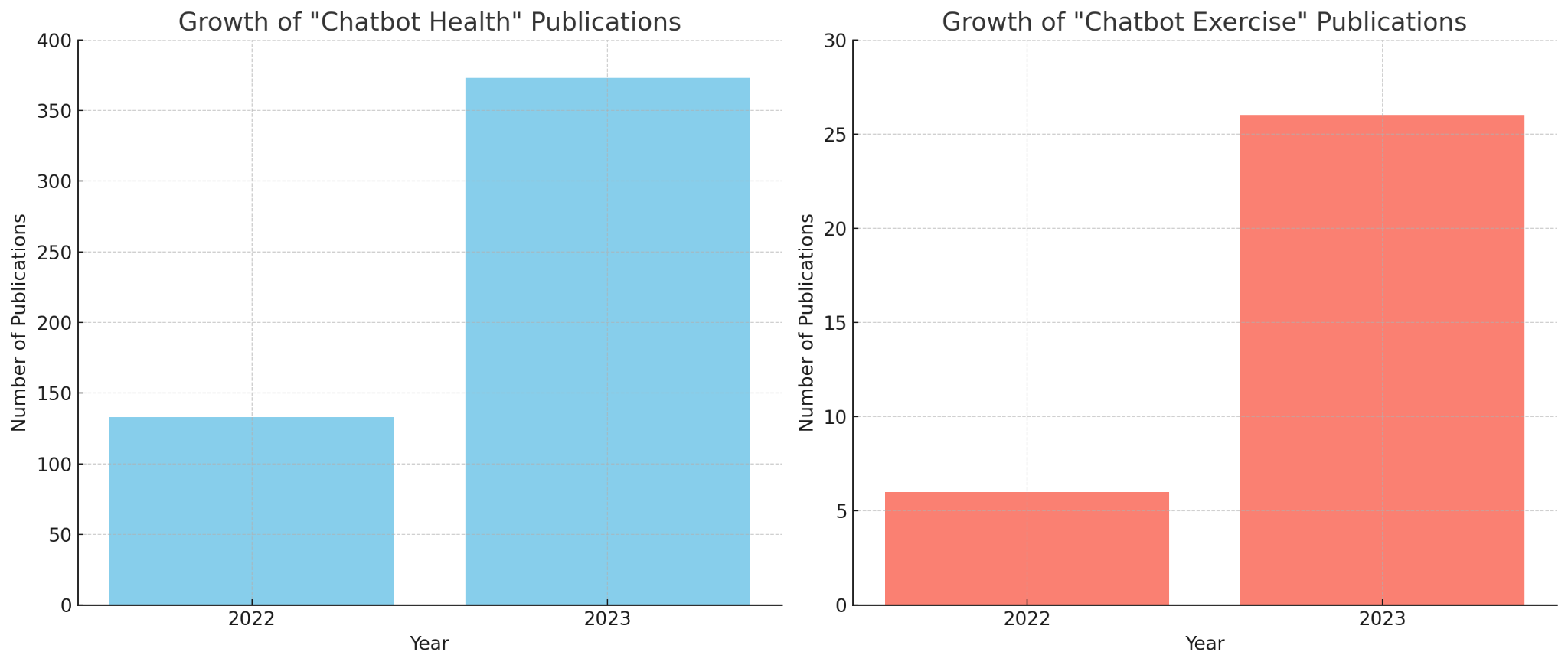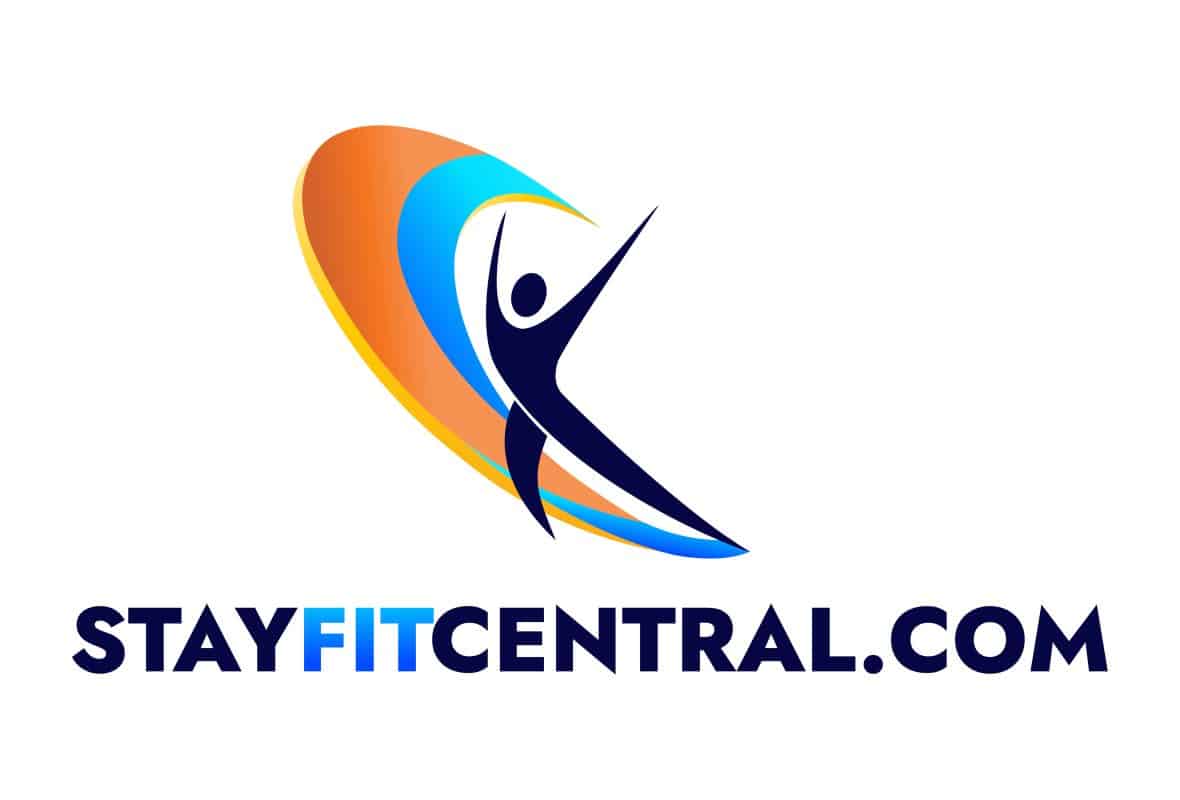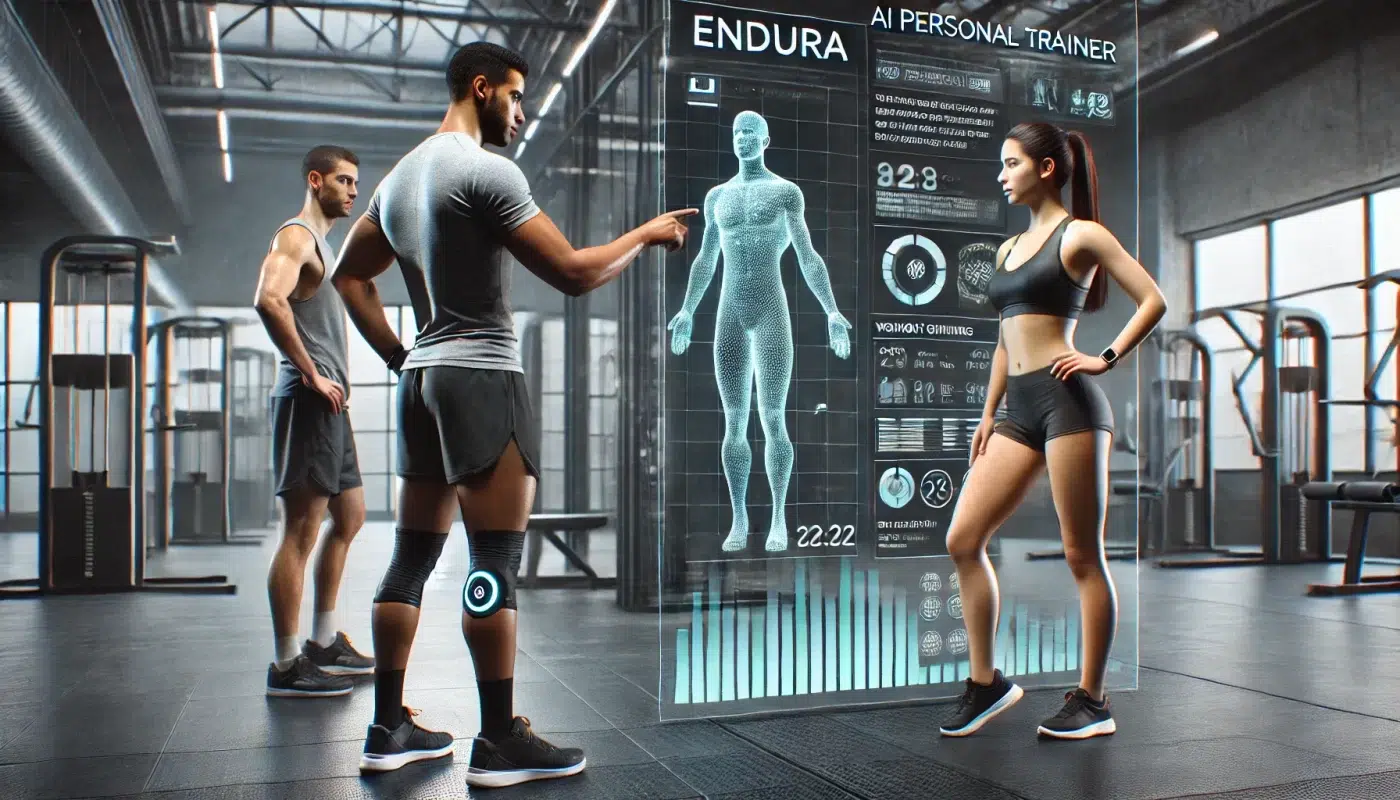AI In Fitness
AI In Fitness – Statistics And Info You Need To Know
Artificial Intelligence (AI) is reshaping nearly every type of business. The fitness industry is no exception.
From personalized workout programs to chatbot health coaches and wearable technology, AI is playing a bigger part in how we approach our health and wellness routines. AI into fitness practices is proving to be a game changer, offering more personalized, efficient, and effective solutions than ever before.
In this article, we will explore the latest statistics related to AI and fitness.
Whether you are a fitness professional looking to enhance your services, a tech-savvy gym-goer curious about the latest advancements, or simply someone interested in the future of health and fitness, this article provides valuable insights into the current trends and emerging opportunities in AI-driven fitness.
AI In Fitness Statistics – The Amount Of Research Nearly Triples
The use of AI in fitness research is increasing every year. A quick search on PubMed, a leading search engine for academic publications, reveals an extraordinary increase in research focused on using AI and chatbots for health and exercise. For instance, the number of publications using the keyword “chatbot health” grew from 133 in 2022 to 373 in 2023, while “chatbot exercise” jumped from 6 to 26 publications over the same period.

Here’s the most important statistics from this research
- 71% of the published research shows chatbots can help people exercise more often.
- The more often you use a chatbot as part of your weight loss and exercise program the more weight you’ll lose, according to this study.
- Using a chatbot fitness coach can help you eat more fruits and vegetables, sleep better, take more steps, and workout more often.
- Stick to your diet and lose more weight. A study shows that a chatbot designed to help people with their weight loss diet finds that it increases exercise activity, adherence to the often recommended Mediterranean diet, and helps participants lose an average of 3.5 lbs.
- Smoking is the leading cause of preventable death in the United States. Results from this research finds that chatbots can help you quit.
- 53% of this study’s participants say chatbots helped them stay active, 89% say the chatbots were easy to use, and 33% would continue using a chatbot as part of their workout plan.
- AI can create workouts and fitness plans being especially useful for people who can’t afford or don’t have access to a personal trainer. AI technologies like ChatGPT, in their current state, can serve as supplemental tools in exercise prescription, particularly in enhancing accessibility for individuals unable to access, often costly, professional advice.
Results From Our Own Research
Study 1: AI Personal Trainer Takes NSCA CPT Exam Practice Questions
We gave Endura, an AI personal trainer and strength coach chatbot over 300 practice questions which people take to study for the National Strength And Conditioning Association’s Certified Personal Trainer – CPT exam. Areas tested were: areas like program design, exercise techniques, and safety protocols. It got 85% of the questions correct without any special prompting or assistance from its user.
Read more about Endura’s results on this exam.
Study 2: How People Feel About AI And Fitness
We scanned threads of dozens of fitness subreddits to learn how people feel about using AI such as a chatbot personal trainer to create workouts and use as their fitness coach.
Here are the results.
- 59% of discussions reflected a positive outlook on the use of AI in fitness, with many users expressing enthusiasm for AI-powered workout plans and tracking technologies.
- Only 6% of the discussions on the subreddits expressed skepticism or negative feelings about using AI as their personal trainer. Our data shows this feeling is a sign of some natural resistance to new technologies.

Additional AI In Fitness Stats
AI Use In Virtual Fitness Classes
- Virtual fitness class participation is growing. The global online/virtual fitness market is projected to reach $250.7 billion by 2032, growing at a compound annual growth rate (CAGR) of 32.7%.” This growth is significantly driven by the increasing demand for flexible, on-demand workout options, particularly in group sessions, which represent the largest segment in the virtual fitness space
- More than 85% of gym members used virtual workouts during the pandemic, many of which were AI-driven.
Using AI In Physical Therapy
- Studies have shown that AI-driven rehabilitation can lead to a 30% faster recovery time for patients compared to traditional methods.” This highlights the efficiency of AI in customizing recovery programs to individual needs
- 70% of users report improved outcomes when using AI-based apps for ongoing rehabilitation and recovery.
Statistics On Diet And Dietary Habits
- About 68% of users who use AI-driven nutrition apps report improved dietary habits, such as increased fruit and vegetable intake and better adherence to recommended dietary plans.
- AI-powered nutrition apps have been shown to contribute to successful weight management, with users losing an average of 5-10% of their body weight within six months of consistent use.” This highlights AI’s effectiveness in supporting weight loss goals https://www.imarcgroup.com/virtual-fitness-market.
- 55% of users of AI-based meal planning apps report greater ease in maintaining balanced diets, as these tools provide personalized meal suggestions based on nutritional needs and preferences.
Gyms Use Of AI – Key Statistics And Findings
- AI helps gyms reduce administrative workload by handling tasks such as membership management, scheduling, and feedback collection. This allows staff to focus more on client interaction and service quality, leading to smoother operations overall.
- About 40% of gyms are now using AI to provide personalized workout recommendations to their members. These AI-driven systems analyze workout history and fitness goals to create individualized programs that keep members engaged and motivated.
- Gyms utilizing AI-driven tools for client engagement report up to a 25% increase in member retention rates.” These tools help maintain regular communication with members, providing timely workout reminders and motivational messages.
Statistics About Personal Trainers Use of AI
- Approximately 78% of personal trainers are using AI to enhance their services by creating highly customized workout plans. AI is able to analyze a client’s fitness levels, goals, and performance data to continuously adapt their workout routines, ensuring optimal results.
- AI tools allow personal trainers to manage larger client bases by automating routine tasks, increasing their client load by up to 30%. Without compromising the quality of service.
- Personal trainers using AI-driven platforms report a 20% improvement in client engagement. Features like real-time feedback, personalized messaging, and progress tracking keep clients motivated and more likely to adhere to their fitness plans.
These Stats Show AI In Fitness Isn’t A Passing Trend
The integration of AI into fitness is not just a passing trend—it’s a significant shift in how we approach our health and wellness. Whether through personalized workout plans, advanced health tracking, or predictive analytics, AI is helping us exercise smarter, safer, and more effectively. While some skepticism exists, the overall feeling towards AI in fitness is largely positive, and the growing body of research supports its effectiveness.
The Stats Show AI In Fitness Is Here To Stay
As AI continues to evolve, it’s likely that more fitness professionals and enthusiasts will embrace these technologies, making them a regular part of their routines. Platforms like Endura are at the forefront of this revolution, offering personalized fitness solutions that adapt to your needs and help you achieve your goals. The future of fitness is here, and it’s powered by AI.

